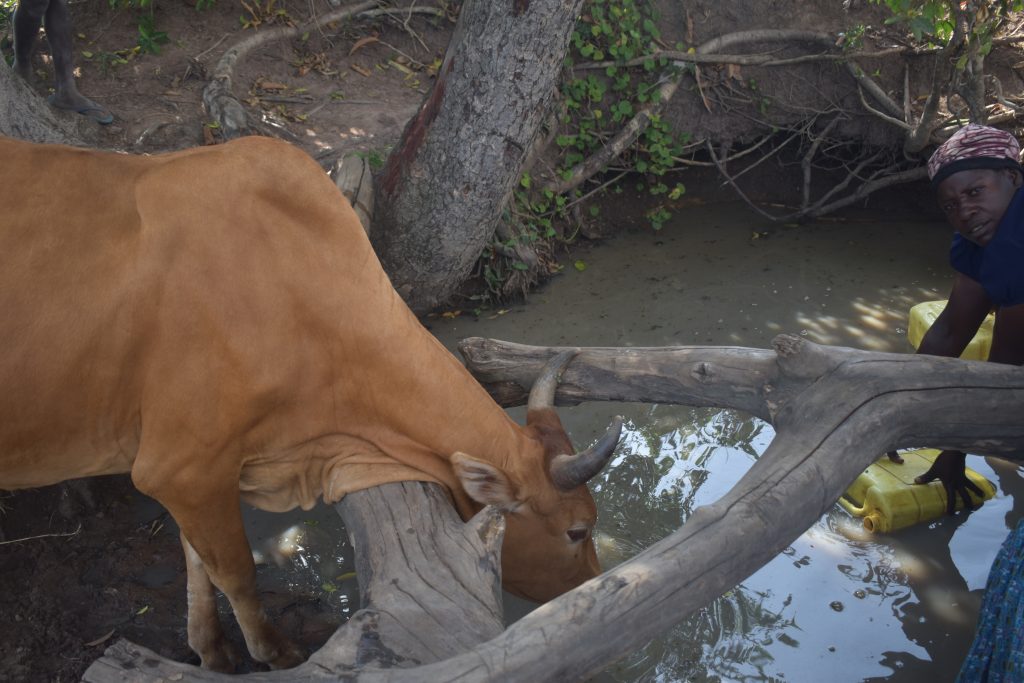By Andrew Bugembe
Per-Per Village, Tororo On a blazing day, Grace Adikini, has to walk for about 4 kilometers in search of water. She then summons a few of her neighborhood friends so they can all go fetch water.
Per-Per is a village not blessed with nature’s gift of easy access to water. This makes many girls trek long distances for it, yet even the ponds that they fetch from are shared with cattle.
“We have to move every day; it is the only way,” said Adikini. “We have to bathe, cook, wash clothes, but also feed animals; we have to do whatever it takes to have water.”
(Video – share the well with animals)
With the high demand for water, they are forced to take whatever they find at the ponds. “We usually find cattle drinking from the ponds, and you have to wait for them to leave before fetching,” said Adikin.
“We can’t go back home with empty Jerrycans; we have to fetch what’s there, dirty or clean, and life goes on,” noted a friend of Adikini.
Sop-Sop Sub County, of which Per-Per is a village, has a population of about 14K people. Around five scattered murky water ponds dot the densely populated area.
“It is absurd that even in this era, people are still fetching water from ponds,” said Jackline Nyafwo No, the village councilor.
According to a report by Geospatial Health in 2017, over 80% of the Ugandan districts are endemic for typhoid. It should be noted that typhoid is ranked among the many waterborne diseases in Uganda.
The locals of Per-Per claim they drink this very water but have not yet registered cases of disease. On the contrary, hospitals register more typhoid cases. “At least 60% of our patients here test positive for typhoid,” said John Owori, a clinic attendant in a faraway village.
In addition, the geospatial report notes that most people suffer largely because of a lack of reliable knowledge to support disease surveillance.
Consequently, there are dangers awaiting young girls who walk these long journeys in search of water. In a society that still behaves in a traditional way, where girls have to do house chores while boys go grazing,
But the condition of the water has put girls at risk of sexual harassment.
“Men disturb us; that is why we are advised to walk in groups,” said Adikin.
On that note, Frank Obonyo, a former UCU administrator doubling as a Per-Per native, saw the misery his home village went through to access water and decided to solicit funds in order to construct a borehole in their village.
“This borehole will be a solution to the dirty waters that people have been using,” said Obonyo.
Even as Obonyo started the initiative as a pilot project, the overwhelming numbers of people who flooded the borehole forced him to think of the water project on a larger scale.
“We thought that this water would serve about five hundred people, but now the population is more than five thousand,” said Emmanuel Odongo, the Per-Per Local Council One (LC1) Chairman.
“We hope to construct more boreholes if more funds come in,” Obonyo noted.


